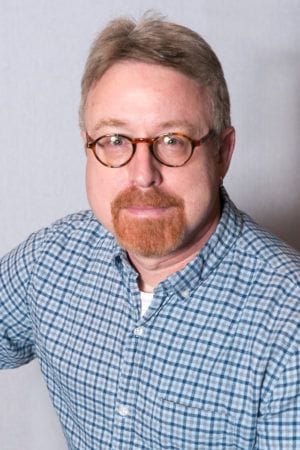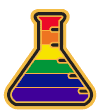Dr. Christopher J. Bannochie is a Manager at the Savannah River National Laboratory. Read on to learn about his work, his advocacy for the LGBTQ+ community, and his advice for making the field more welcoming to LGBTQ+ chemists. What is the focus of your research? What inspired you to explore this field? As a Senior […]


What is the focus of your research? What inspired you to explore this field?
As a Senior Fellow in the laboratory, the focus of my current research is mercury speciation in Savannah River Site tank waste. This has been an extremely active area of work for the Savannah River National Laboratory (SRNL) for the past four years, and will continue to be so as we process more legacy nuclear waste for final land and repository disposition. Currently (since May 1), I’m doing a rotational assignment managing the SRNL Training and Procedures Organization. This has been an entirely new experience, and I have been charged with making changes and improving processes, particularly on the R&D side of this position. The organization is responsible for both Facility & Operations, as well as R&D training and procedures. As a Nuclear Facility, there are strict rules for how these programs are undertaken, implemented, and controlled. I have been employed at SRNL for the past 28 years, so I bring a lot of institutional experience and knowledge to this assignment and I’m grateful for the challenge and responsibility it presents.
Who are some of your professional mentors? How have they impacted your career?
For many years my primary mentor was an Advisory Scientist who has since retired from the laboratory. He had 40 years of experience working in the area of nuclear materials processing and analysis and was an excellent guide for my career. Currently, my mentor is an Associate Laboratory Director with whom I’ve worked as both a colleague and later as an employee for many years. We were both assigned at Lawrence Livermore National Laboratory for several years and have worked in the Environmental Stewardship arena at SRNL for many more. She has tremendous managerial skills and has been a sponsor for some of my innovations at the laboratory.
How did you become involved with the Gay and Transgender Chemists and Allies subdivision of the ACS Division of Professional Relations? What has that experience been like for you?

I proposed the Gay and Transgender Chemists and Allies subdivision to the Division of Professional Relations in San Francisco in March of 2010 when I was Chair-Elect of the division. I recounted this history in an ACS Symposium Series chapter entitled, “Alphabet Soup and the ACS: The History of LGBT Inclusion” that was published in 2017 in Diversity in the Scientific Community Vol 2: Perspectives and Exemplary Programs edited by ACS Past President Donna Nelson and HN Cheng. I was also the creator of the subdivision’s extremely popular Rainbow Erlenmeyer flask lapel pin, now in its second printing. It has been rewarding to see the subdivision grow and mature over the past nine years. It has had many creative and energetic leaders that have done a wonderful job promoting the subdivision.
What does the chemistry community need to do to attract LGBTQ chemists and help them thrive?
The community needs to continue to mature in its attitudes and acknowledge that LGBTQ chemists exist and that they cannot do their best chemistry while the attitude persists that being LGBTQ has nothing to do with good chemistry – this is the same attitude that has held women back within the chemistry community for many years. I think corporate America has done a pretty good job for the community, but academe has a long way to go.
Do feel like you’ve had to do “invisible labor” in the workplace as a member of an under-represented group in chemistry? If so, how has that manifested?
I have been out at work for the past 20 years, there have been many struggles to get people to understand what it is like to be invisible, and when visible to be treated differently. There is still a lack of appreciation for diversity equity, many individuals think equality is the end of the road. I am still amazed at how few people know anything about the LGBTQ community and its struggles, and how many fewer people care to do anything about this lack of knowledge and awareness.
What did you do to celebrate Pride Month?
We held a program at the Savannah River Site commemorating the 50th Anniversary of the Stonewall Uprising, complete with cake! We are also celebrating the 10th Anniversary of the first Augusta Pride Parade and Festival this year. I was a founding member of Augusta Pride and served as its Public Relations Chair for the first four years or the organization. It was a very exciting and rewarding experience, and I’m proud of the contributions I was able to make to its success.